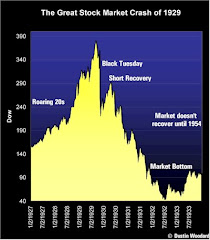Monday, April 19, 2010
Double Dipping Teachers earn $108 Million over and above pensions
The CBC reported that Ontario has rules which allow teachers to work as supply teachers up to 95 days in first three working years after retirement without it affecting their pensions. It is known as double-dipping because teachers are also earning pensions at the same time they are being paid.
No clampdown on Ont. teachers' 'supply work'
Double dipping is a problem for taxpayers that is going to be more and more prevalent in the next few years. As the baby boom starts to retire, especially the public sector, and being faced with a worker shortage, government organizations will need retired workers to fill in.
What allows double dipping is the fact that many teachers are eligible for pensions at age 55. They will receive a pension valued at close to 70% of their retiring wage, including CPP. For teachers in Ontario, with a career ending income of $95,000 per year, this means a pension of about $66,500 per year including CPP.
So the double-dipping is a bit of extra pocket change.
Teaching is Big Business
In Ontario the education budget accounts for17.5% of all provincial spending. Healthcare accounts for 37%. In 2009 this meant that about $20 Billion was spent on education.
Some education taxes are collected as part of municipal property taxes. They are a significant chunk of most taxpayer's property tax. For example in my hometown of Hamilton the revenues coming into the Hamilton Wentworth District School Board in 2009 were $495 Million. This compares to about $1.3 Billion for the city budget at the City of Hamilton
Of course spending on schools never goes down. It continues going up, up and up despite the fact that enrollment in schools in Canada is falling like volcanic ash. In order to justify increased spending every year school boards have come up with many creative ideas. The most popular current one is smaller class sizes.
Subscribe to:
Post Comments (Atom)




No comments:
Post a Comment